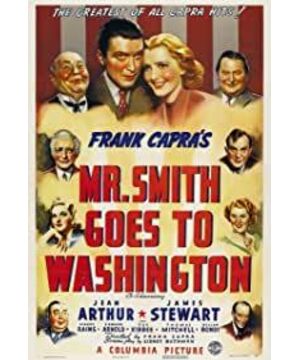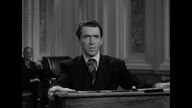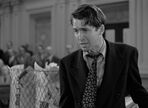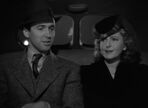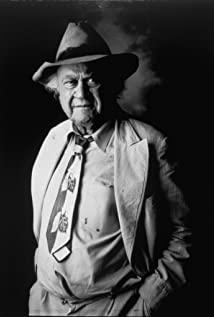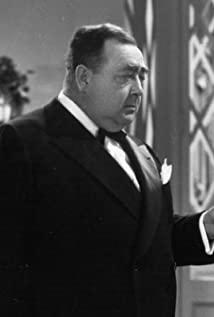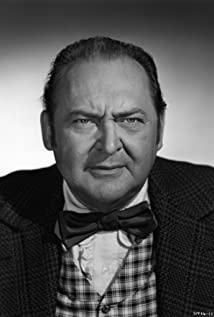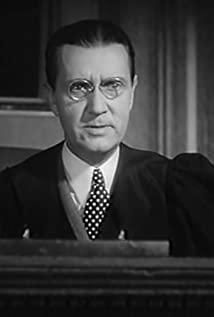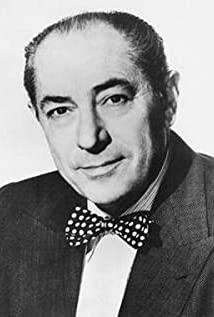On the surface, "Long Live Democracy" is an extremely pungent satire and acrimonious ridicule of American parliamentary democracy and freedom of speech, so that when it premiered in Washington, some people publicly accused the film of insulting the government. dignity". However, Frank Capra is a loyal supporter of the American democracy and freedom system after all. All the irony and ridicule are out of love for the system. He sincerely hopes to remove the disease and strengthen the vitality of the system, not only the justice played at the end of the film. The strong voice of democracy victory over evil is enough to prove it, and what is more noteworthy is that Capra has exposed Lincoln several times in the film, including pictures and sounds, as the source of "long live democracy". One example is Jefferson listening to a child recite Lincoln's speech on the monument in front of the Lincoln statue in the Lincoln Memorial. Hollywood masters of comedy can disregard the hidden essentials of art in shaping a positive American image, and let the tendency "expose it very clearly." However, the film can still win the Golden Image Award and be listed in the "Film Daily" and other selections. Almost all of the history of American cinema will praise it as one of the best political films. This point is worth thinking about.
Pointing out the unabashedly patriotic nature of Hollywood political satires in the 1930s does not mean denying the ideological and artistic achievements of "Long Live Democracy". The ups and downs of Mr. Smith's visit to Washington, after all, effectively lifted a corner of the hypocritical veil of American democracy and freedom. There is an obvious artistic imbalance in the film. Some insightful American film critics have pointed out that, like many other films by Capra, the ending of "Long Live Democracy" ends with its "superficial sentimentalism and superficial populism." "It feels naive and ridiculous. I am afraid that for the vast majority of the audience, Jefferson's victory with marathon-style speeches is difficult to dilute the deep impression of Taylor's great power in raping public opinion and stifling freedom of speech.
In the first half of the film, it is more accurate to say that with the exception of the ending part, Capra's outstanding talents as a master of comedy movies often inadvertently hurt Capra's pious intentions as a supporter of the American democratic system. This is particularly obvious in the portrayal of Jefferson. Jefferson appeared as the antithesis of Taylor and his gang. He was a democracy fighter who could not tolerate others tarnishing the honor of the Senate. Governor Hopper, after learning of Jefferson's deeds, shouted that he had discovered "this Lincoln" and determined to find more Jefferson while eradicating Taylor and his gang. But before that, as Hopper described, Jefferson was "just a fool, a simple-minded patriot." He "can memorize Washington and Lincoln, stand upright in front of the governor, and collect lost children and cat". When Jefferson made his first appearance on the screen, he was plastering a Siamese monkey with a broken leg in an animal domestication room. In front of the governor, he completely lost his ability to control himself. He raised his throat desperately to cover the barking of dogs, screams of parrots, and various other animal noises in the animal room. Capra's exaggerated treatment made it difficult for Jefferson to get rid of his harlequin status in life. What followed was countless embarrassments: at the farewell party held in the state banquet hall, in front of Paine’s beautiful daughter’s donation box, and in an interview with a Washington newspaper reporter, Jefferson was always at a loss, language and spirit. Bewildered and ugly. Especially when he went to the reporters to comment on a scene where he was beaten up, not only the audience, but even he himself couldn't deny that he was just a "fake tiger that only nods at Christmas". Even when Jefferson was a positive person in the Senate forum to "seriously expose" the scam of the Vilit River Dam, his speech still made people laugh, because Capra actually treated the marathon speech as a comedy. of. The "sacred and solemn" US Senate seems to consist of only two people: puppet members manipulated by consortia like Frye and Paine, and simple-minded political fools like Jefferson. When Jefferson sat high on the float of the Zhujie parade and returned to Jackson City victoriously surrounded by a group of young players, the audience only felt that the prologue of a farce was about to end, and it was difficult for the US Congress to finally find and discover more about Jefferson. Such "Lincoln" feels that democracy is hopeful and long live democracy. Perhaps in this regard, "Long Live Democracy" is an excellent political satire.
When Capra filmed "Long Live Democracy", it was the most brilliant period of his creative achievements. The great success of a series of so-called "eccentric comedies" such as "A Night in Love" (1934), "Floating Clouds" (1936), "Floating Life as a Dream" (1938), and this film has established Capra's role as a master of comedy movies. status. It is worth noting that these films are so popular with the audience, one of the reasons is that he is unique in dealing with the voices of the leading actors and actresses (including the timbre of the voice and the changes in the intonation of speech, etc.). The voices of actors often become the main artistic element of their films, and even play a decisive role in the development of the storyline. In "A Night in Love", a high-class girl learns the "real" American language from an American journalist (Clark Gable) who speaks extremely fast. The linguistic features of Mr. Liditz (played by Calais Cooper) in "Floating Clouds" almost constitute part of his character. Capra chose James Stewart to play the protagonist in "Long Live Democracy" because of his expressive noise-from innocence and childishness to crazy and desperate, almost like two people. Capra's selection of Cooper and Stewart in "The Mass" (1941) and "A Wonderful Life" (1947), respectively, is related to their unique voice charm. In the case of "Long Live Democracy", the voice of the actors and their influence on the audience is generally regarded as a main line of the film's structure. The tall James Stewart stammered a lot on the Senate forum and had a strong foreign accent. In contrast to his debating opponent, the short stature of Claude Lence, these scenes that appeared repeatedly became the film. Unforgettable sound-image dynamic structure. For another example, when Jefferson delivered a speech at the farewell party of the state government, the novice was unspeakable, but when his young team members presented him with souvenirs, he made a moving speech in an instant due to emotional impulse. He was full of enthusiasm when he introduced his youth camp construction plan to Sants, which caused Sants to immediately express his full support. However, when he introduced the same plan to the Senate, he did not listen to his tongue and his voice suddenly became too loud. Suddenly too low, not only unconvincing, but also funny. Stewart's marathon speech is even more of a "multi-voice" performance-this scene was filmed in the "Senate Chamber" carefully constructed in the studio, and Capra made full use of all visible audio-visual elements- -Changes in the expressions of the venue, podium, corridors, senators and observers from indifferent to deeply moved-to spatialize the sound. Capra's original experiment in the voice of actors also enabled "Long Live Democracy" to occupy the history of film art.
View more about Mr. Smith Goes to Washington reviews


